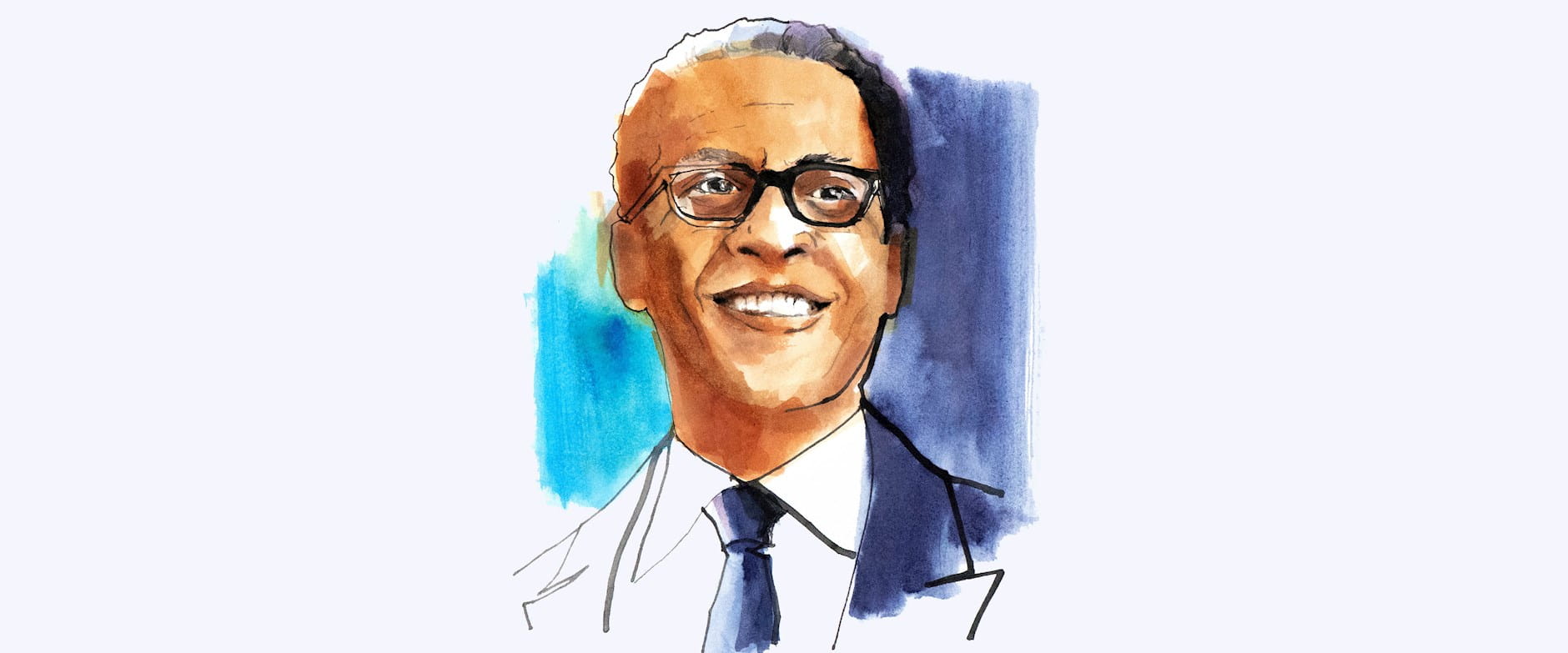
Return to the Pitch
After years of studying the sport, Sachin Mylavarapu, ’21, has led his team to success in Minor League Cricket.
Return to the Pitch
Greg Betza
A native Washingtonian, Kendrick Foster Ashton Jr., MBA ’04, JD ’04, wasn’t sure where he wanted to begin his career. An interest in finance led him to Chicago Booth, where he gained foundational skills in entrepreneurship that he’s since parlayed into myriad high-profile sports, media, and entertainment ventures. Following successful stints at Goldman Sachs and the investment banking firm Perella Weinberg Partners, Ashton continues to apply these lessons as cofounder and co-CEO of the St. James, a sports, wellness, and entertainment platform based in the DC area.
Ashton also routinely uses his eye for entrepreneurship to give back to his community. In addition to serving on the boards of the National Urban League, the Colonial Williamsburg Foundation, and his alma mater, the College of William & Mary, he also helped start Urban Prep Charter Academies, which provides a high-quality, college preparatory education to young men from all over the city of Chicago. Building community is important to him, he says, noting that “creating opportunities for people to pursue their passions, collaborate, and spend time with like-minded peers is a powerful thing.”
As a modern-day Renaissance man of sorts, what drew you to Booth?
As someone who studied international relations and thought about markets in a broader context, I went looking for the best MBA programs in the world to supplement my background with core business training. I wanted a program that drew from multiple disciplines and offered a high-touch, sophisticated approach to solving problems and evaluating business opportunities. When I came through 20 years ago, Booth had the most rigorous, flexible, and dynamic programming—I believe that’s still true today.
Your career has spanned a broad array of fields. How has your education helped bridge any gaps?
My training at Booth helped illustrate how many similarities exist between different types of industries—and how entrepreneurial thinkers can leverage these areas of overlap to spot new opportunities. It gave me the confidence to get ahead, as well as the tools to efficiently solve problems and thoughtfully innovate. Overall, my robust academic experience taught me how to apply a more thoughtful approach to considering business challenges and to working with an array of people.
What advice would you give tomorrow’s leaders as they work through uncertainty?
Be a really good listener. My education at Booth taught me how to digest information in a nuanced way, and encouraged me to pursue a complete understanding of the facts at hand. It’s important to speak up and clearly articulate your thoughts. In addition, you need to be intellectually humble and honest. There’s no shame in admitting you don’t know something and asking questions.
What specific tools do you recommend pursuing, inside the classroom and out?
It’s critical to be able to apply a robust set of analytical skills to whatever you’re doing. There’s no better place to develop these skills than Booth. Also, be resourceful: opportunities aren’t just going to roll up to your door—you’ve got to go out and chase the tools, assets, and partnerships that you need. Finally, be resilient. You can’t let the first bump (or first 100 bumps) in the road derail you.
What other areas should professionals focus on developing?
Everybody should take some sort of leadership and organizational behavior class. Once you take on a leadership position, you’ll be spending more time than you ever expected understanding what motivates and inspires colleagues to give their best contributions. Intentionally cultivate a network, and nurture your relationship-building skills every day. Treat personal relationships as the most precious asset that you have. I’ve had a lot of great opportunities in my career. While luck has played a role, the relationships that I’ve built over the years have made a huge difference.

After years of studying the sport, Sachin Mylavarapu, ’21, has led his team to success in Minor League Cricket.
Return to the Pitch
Chris Bordoni, ’12, channels life’s trials into a podcast that celebrates resilience and reinvention.

A leader in health-care venture capital, Thangaraj traces his roots at the University of Chicago and shares the importance of investing in relationships.
The Book of Booth: Immanuel Thangaraj, AB ’92, MBA ’93